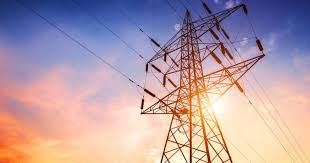Senate Embarks on Amendment of Electricity Act to Define Regulatory Roles, Criminalize Vandalism

Senate Embarks on Amendment of Electricity Act to Define Regulatory Roles, Criminalize Vandalism
The Senate has initiated a legislative process to revamp the Electricity Act, 2023, with the progression of the Electricity Act (Amendment) Bill, 2025, to its second reading.
Sponsored by Enyinnaya Abaribe, the senator representing Abia South, the bill aims to resolve the persistent crisis within Nigeria’s power sector by elucidating regulatory roles, addressing vandalism, and refining governance throughout the electricity value chain.
Introducing the bill during Tuesday’s plenary session, Abaribe, who presides over the Senate Committee on Power, stated that the proposed amendment is a response to emerging challenges in the sector following the decentralization of electricity powers to states in the 2023 constitution.
Abaribe cautioned that the Nigerian Electricity Supply Industry (NESI) is “teetering on the brink” due to operational bottlenecks and a sector-wide debt crisis amounting to trillions of naira.
“This bill confronts the stark reality that the Nigerian power sector is precariously positioned,” he asserted.
“With debts reaching into trillions of naira and relentless sabotage, swift action is imperative to avert a total system collapse.”
He outlined key provisions within the bill, including the criminalization of vandalism of electricity infrastructure, clarification of regulatory transitions from the Nigerian Electricity Regulatory Commission (NERC) to state regulators, restructuring of the Power Consumer Assistance Fund, and formal acknowledgment of institutions such as the National Electric Power Policy Council and the Forum of Electricity Regulators.
Numerous lawmakers supported the amendment, advocating for more stringent punitive measures to deter power theft and sabotage.
Mohammed Monguno, senator representing Borno North, remarked that the bill’s significance parallels that of the Petroleum Industry Act.
“This amendment is transformative, akin to the Petroleum Industry Act that this parliament amended to revolutionize the industry. This amendment aims to achieve similar objectives.
“In light of the constitutional amendment that shifted power from the legislative exclusive list to the concurrent legislative list, states can now legislate on electricity matters, leading to conflicts between state-enacted laws and existing national laws.
“Essentially, this bill seeks to harmonize with the constitution,” Monguno submitted.
Solomon Adeola, senator representing Ogun West, expressed concerns regarding unsustainable subsidies and the sabotage of electricity projects by contractors.
“Over the years, numerous individuals have exploited this sector, with the federal government being the sole generator and distributor of power in Nigeria.
“Currently, the federal government’s indebtedness to these contractors amounts to billions and millions of dollars, which is why any attempt by the federal government to eliminate subsidies from this sector is invariably met with public outcry.
“This inconsistency has plagued this sector,” he stated.
Yunus Akintunde, senator representing Oyo Central, highlighted issues arising from the licensing of GenCos and DisCos without adequate transmission infrastructure.
“In examining transmission infrastructure, it is evident that they are antiquated and ineffective.
“I have consistently argued that government funds should not be allocated to purchase transformers. These are private enterprises,” Akintunde noted.
Garba Maidoki, senator representing Kebbi South, voiced frustration over tariff increases and the lack of accountability from power companies.
“None of the generating companies have compensated the NNPC for the gas utilized over the past five years.
“This gas is government-owned. If we deduct the cost of gas from the GenCos, from their debts owed to the federal government, there is no debt at all. Clarity is essential.
“If they fail to pay for the gas used in generating electricity, where will the government procure the funds to compensate them for services rendered?
“A comprehensive approach is necessary. Nigerians should not bear the burden of frequent incremental charges,” he said.
In his remarks, Godswill Akpabio, President of the Senate, lauded Abaribe and the Power Committee for initiating the amendment.
“Without electricity, industrial growth within the country is unattainable,” Akpabio stated.
He expressed optimism that the bill would address public concerns during the public hearing phase.
The bill has been referred to the Senate Committee on Power, which has been allotted six weeks to provide a report.









